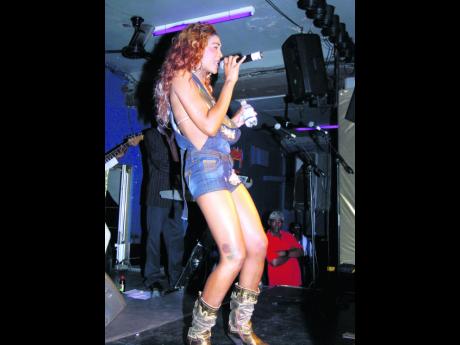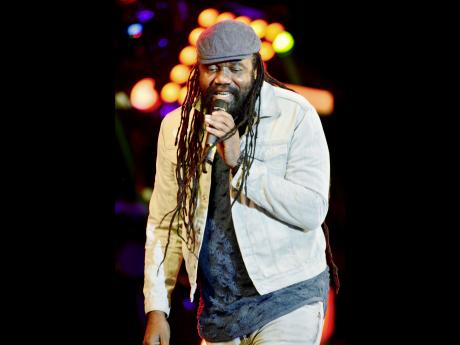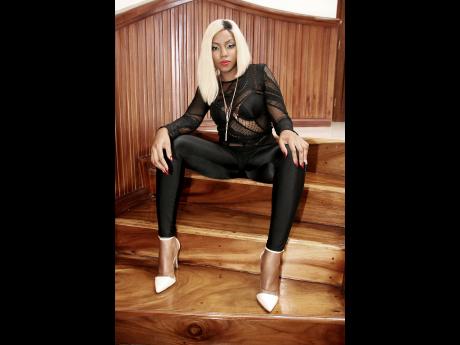Female artistes absent from local stage shows
From the minute a woman takes an interest in the local music industry, she enters a male-dominated world. Industry professionals will say that for every five male recording artistes, there is one female, and over two-thirds of the performers on the global stage are men.
Female recording artiste Michelle 'D'Angel' Downer told The Gleaner that the amount of female talent that exists is often misrepresented on the local stage, especially in cases where the line-up for an event has over 20 male performers and no female.
"I hate to see a line-up with only male artistes. It's not the first time I have opened my mouth to tell promoters that they need to open their eyes for a change and stop ignoring the talented women," said Downer.
The Woman Power singer says that her colleagues are also coming into their own, exhibiting more strength than in the early 2000s, and that all the dancehall sorority needs is someone to advocate for them.
She said, "Someone has to advocate for the women in dancehall. There is a notion, especially in dancehall, that I think women are hurt by - that you're not (physically) hot enough. And my question is, does having a catalogue of music not show that the work is being put in? Globally, women have to deal with promoters of millions of events right around the world turning a blind eye. Look at the posters and you will see it for yourself."
She continued, "I'm pleading for women to be given a chance to showcase the talent that exists on local stage shows, and I'm calling for unity. That's the only way we're going to get stronger."
Stacie-Ann Lamoth, who goes by the name Stylysh, says that female artistes are not necessarily getting as strong a fight as some make it out to be, but she agrees that there is a disparity. "There is definitely an obvious divide on the popular stage shows where patrons are exposed to a lot of males, and maybe one female, being used as the standard for the larger number of talented female artistes."
She added, "The lack of unity used to hold us back, but the system of female empowerment has encouraged a unified voice which can be used to make more persons aware - not that we are all going to be best friends, but together, nothing can hold women back," said Lamoth.
She also argued that sex sells, but she said that although this cannot be disputed, it should not be used as an excuse to leave women off a show. "We have to physically look good and can't be representing certain songs in dancehall and look 'pop-down' - we have the challenge of having to pay attention to our physical appearance as much as the music."
The dancehall singjay notes that in her own journey as a rising talent, the process of getting bookings has been biased.
"Promoters blatantly tell me or my team that them want the men in the music industry, even when they see females in the dance equally putting in the work," she said.
Speaking from the promoter perspective, reggae veteran Tony Rebel explained that in preparing entertainment line-ups, promoters (male and female) tend to develop criteria that the artistes must fit. "It is not a gender-based selection. For Rebel Salute, persons that qualify must not only demonstrate talent, but have a catalogue that is motivating and inspiring," said Tony Rebel. He adds that it must also be reflected in the way they carry themselves.
"When it comes to female artistes, a lot of them put too much emphasis on promoting the external image before even presenting the music. It is true [that] they need to look good, but female artistes really need to take a second to think about the music and focus less on being derogative. Nothing is wrong with it as it has its space also," he said.
"All-female tours go on all the time, and it can work in Jamaica if promoted properly," he adds. "The focus cannot be on the fight females are getting." He believes that if the women step up to the plate and present the music, then "even if it takes them 10 years to achieve that with their work", the promoters will highlight them, whether in reggae or dancehall.
He reiterated, "It is not just Jamaica alone that that problem presents itself. The women work hard and still do not make it on the shows because the criteria is not met. But as soon as people recognise the pull, it happens."



